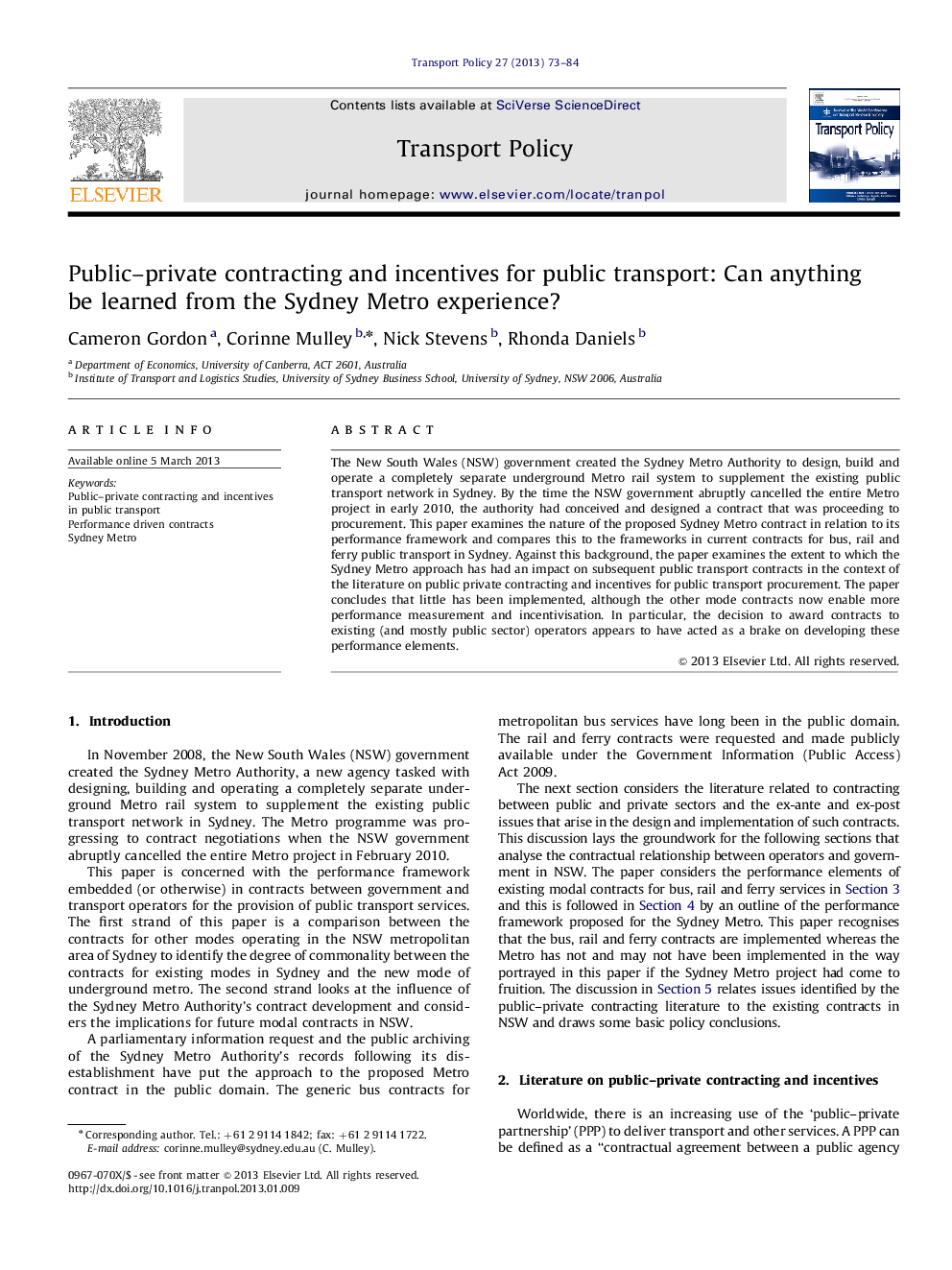| Article ID | Journal | Published Year | Pages | File Type |
|---|---|---|---|---|
| 1065056 | Transport Policy | 2013 | 12 Pages |
The New South Wales (NSW) government created the Sydney Metro Authority to design, build and operate a completely separate underground Metro rail system to supplement the existing public transport network in Sydney. By the time the NSW government abruptly cancelled the entire Metro project in early 2010, the authority had conceived and designed a contract that was proceeding to procurement. This paper examines the nature of the proposed Sydney Metro contract in relation to its performance framework and compares this to the frameworks in current contracts for bus, rail and ferry public transport in Sydney. Against this background, the paper examines the extent to which the Sydney Metro approach has had an impact on subsequent public transport contracts in the context of the literature on public private contracting and incentives for public transport procurement. The paper concludes that little has been implemented, although the other mode contracts now enable more performance measurement and incentivisation. In particular, the decision to award contracts to existing (and mostly public sector) operators appears to have acted as a brake on developing these performance elements.
► Performance incentives in public–private procurement are identified. ► Incentives in the proposed Sydney Metro contract are examined. ► Comparison of the proposed Sydney Metro contract with other modal contracts is undertaken. ► Extent of policy transfer and learning is identified. ► Reasons for the lack of effective performance incentives in contracts are discussed.
